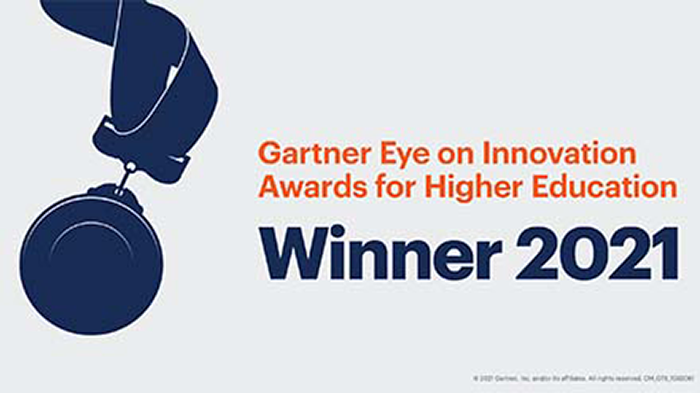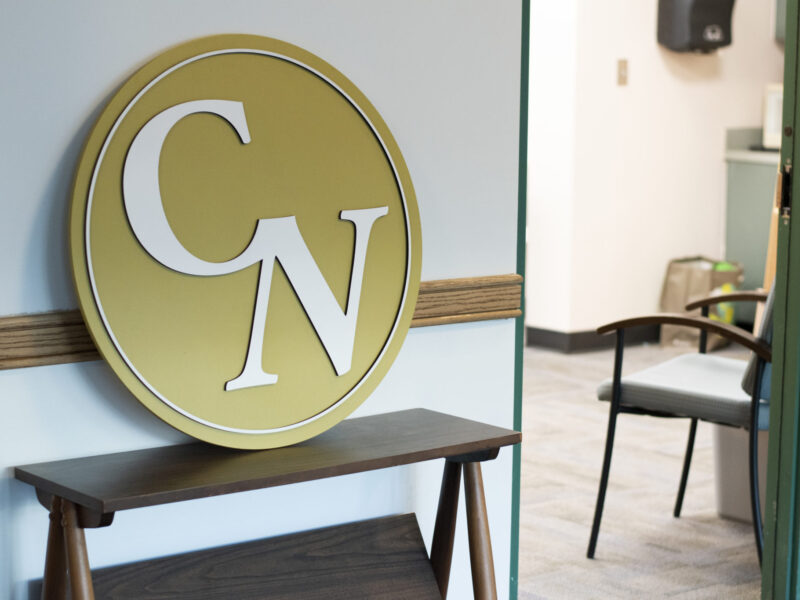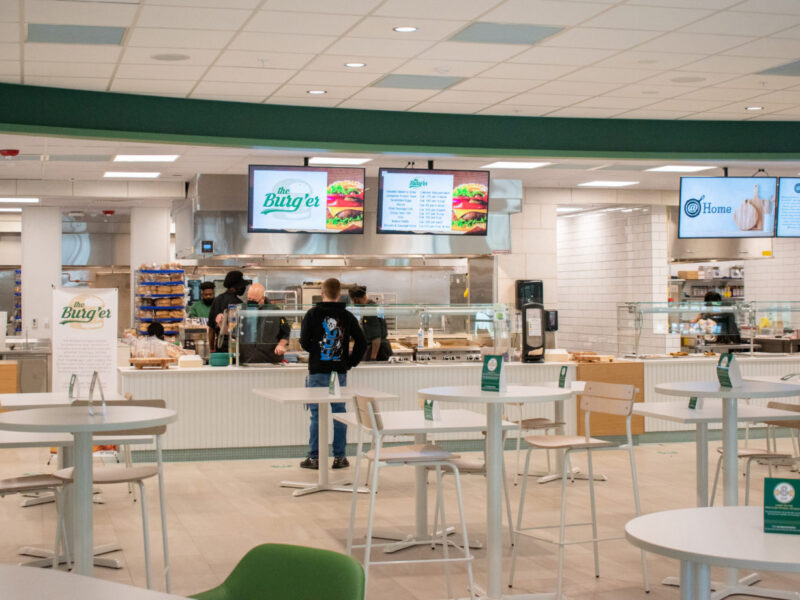USF was one of three institutions, and the only one in the U.S., to receive the award.
Courtesy of USF
By Aubrey Carr
USF has been recognized for its technical innovation during the COVID-19 pandemic.
Due to the university’s work in utilizing technology for the prevention of viral spread, USF has been named a winner of the Gartner 2021 Eye on Innovation Award for Higher Education.
The award was created by S&P 500 member Gartner, Inc., a technological research and consulting firm based out of Connecticut. Gartner describes the award as, “a recognition by industry peers for innovation excellence that inspires others.”
USF was one of only three institutions that received the award, alongside Canada’s York University and Australia’s Deakin University. USF was specifically acclaimed for “Process, Insight and Automation.”
The award was made possible due to the diligent work conducted by the university’s Information Technology (IT) Department.
Over the course of the pandemic, USF’s IT department introduced a variety of solutions that assisted in reducing the spread of COVID-19 and eased financial burdens on students.
Helpful additions included the Return to Campus/Campus Pass, which brought about the university-wide daily symptom tracker.
The tracker, previously a requirement to be on campus, had an average of 8,000 individuals submit symptoms daily. The university used data from the tracker to develop safety strategies –– including building occupancy and testing operations.
“Data was available to us rapidly and in a user-friendly format which allowed us to plan, but also to react in near-real time to an evolving situation,” Donna Petersen, dean of the College of Public Health and chair of the COVID-19 Task Force, said in a press release. “All of this allowed us to keep case numbers down and to continue providing academic programs in as safe a manner as possible.”
Other solutions included the development of the CARES Act financial aid application, which allowed nearly 4,000 students to quickly upload the personal documents and financial records needed to be considered for aid.
Additionally, other small features were provided to the USF community during the early days of the COVID-19 pandemic.
An application for students to consider a pass/fail grading option and a system that allowed students to access virtual “drop-in” meetings with advisors, was also developed.
“I was so impressed because using this automation approach, our IT team more than exceeded our expectations. This was truly transformational,” Moez Limayem, dean of the Muma College of Business, said.
Although the award specifically considered technological achievements made during the pandemic, the groundwork for the IT department’s advancements was made long before COVID-19.
“Prior to the pandemic, we had recognized that the increased appetite for technology and speed to value meant that we needed to change how we created solutions at USF,” Alice Wei, senior director for Digital Innovations, said.
“We needed to be able to respond to business needs and show value much more quickly and iteratively. We developed a strategy that leveraged hyper automation and composable architecture, which meant building pieces of technology like LEGO blocks that could be rapidly assembled and re-assembled to create new solutions as demands changed.”
The new strategy toward advancement was far from a lone effort, with USF’s IT department working alongside the field’s top players.
“This was a true team effort, requiring coordinated contributions from nearly every member of IT. Our success relied on our use of the scaled agile framework (SAFe) and promotion of an agile culture that enables many teams to work together at great speed to deliver value without breaking a sweat,” Sidney Fernandes, vice president and chief information officer, said.



